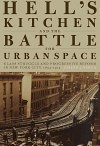Movements
The March on Washington for Jobs and Freedom
The year 1963 was a high-water mark for the civil rights movement—the year of the great March on Washington for Jobs and Freedom, which drew hundreds of thousands to march for civil rights. But the march also set the stage for the opening of a what was perceived as second, far more radical, phase of the civil rights strategy, developed by the March’s organizers. This led to the development, over a three-year period, of the proposed Freedom Budget for All Americans. It projected nothing less than the elimination of all poverty and unemployment in the United States before the end of the 1970s.… The 1963 March on Washington continues to stand as a great achievement, which—combined with hard-fought nationwide struggles—helped to secure meaningful civil rights and voting rights legislation, and impressive shifts in consciousness. Yet the promise and expectations of King, Randolph, and Rustin for a full realization of their goals for interlinked racial and economic justice remained unfulfilled. | more…
The Theory of Monopoly Capitalism: An Elaboration of Marxian Political Economy was initially written thirty years ago this coming year as my doctoral dissertation at York University in Toronto. It was expanded into a larger book form with three additional chapters (on the state, imperialism, and socialist construction) and published by Monthly Review Press two years later. The analysis of both the dissertation and the book focused primarily on the work of Paul Baran and Paul Sweezy, and particularly on the debate that had grown up around their book, Monopoly Capital: An Essay on the American Economic and Social Order (1966). In this respect The Theory of Monopoly Capitalism was specifically designed, as its subtitle indicated, as an “elaboration” of their underlying theoretical perspective and its wider implications.… Three decades later much has changed, in ways that make the reissuing of The Theory of Monopoly Capitalism in a new edition seem useful and timely. The scholarly research into Baran and Sweezy’s Monopoly Capital has expanded enormously in the intervening years, most notably with the publication of the two missing chapters of Monopoly Capital—one on the theoretical implications of their analysis for economics, the other on culture and communications—and through research into their joint correspondence. The Great Financial Crisis and the resurfacing of economic stagnation have engendered new interest in this tradition of thought. Under this historical impetus the theory itself has advanced to address new developments, particularly with respect to the understanding of stagnation, financialization, and the globalization of monopoly capital. | more…

Hell’s Kitchen is among Manhattan’s most storied and studied neighborhoods. A working-class district situated next to the West Side’s middle- and upper-class residential districts, it has long attracted the focus of artists and urban planners, writers and reformers. Now, Joseph Varga takes us on a tour of Hell’s Kitchen with an eye toward what we usually take for granted: space, and, particularly, how urban spaces are produced, controlled, and contested by different class and political forces. | more…

The U.S. working class was slow to respond to the hard times it faced during and after the Great Recession. Finally, however, in February 2011, workers in Wisconsin began the famous uprising that electrified the country, revolting in large numbers against Governor Scott Walker’s efforts to destroy the state’s public employee labor unions. A few months later, the Occupy Wall Street movement spread from New York City to the rest of the nation and the world. Then, in September 2012, Chicago’s public school teachers struck, in defiance of Mayor Rahm Emanuel’s attempt to destroy the teachers’ union and put the city’s schools firmly on the path of neoliberal austerity and privatization.… One thing that these three rebellions had in common is the growing awareness that economic and political power in the United States is firmly in the hands of a tiny minority of fantastically wealthy individuals whose avarice knows no bounds. These titans of finance want to eviscerate working men and women, making them as insecure as possible and totally dependent on the dog-eat-dog logic of the marketplace, while at the same time converting any and all aspects of life into opportunities for capital accumulation. | more…
For nine days in September, Chicago belonged to the teachers, school paraprofessionals, and clinicians. On September 10, 2012, 26,000 members of the Chicago Teachers Union (CTU) went on strike. It was the first teachers’ strike in Chicago in twenty-five years. While public and private sector unions have taken concessions and capitulated to cuts in wages, benefits, seniority rights, job protections, and much of what was won by the labor movement in the twentieth century, the CTU stood up to Mayor Rahm Emanuel, the Commercial Club of Chicago, and the billionaire hedge-fund managers who have set out to break teachers’ unions and dismantle public education. | more…
CORE and the Chicago Teachers Union
The success of the Chicago Teachers Union (CTU) strike in September 2012 was a stunning rebuke to the forces of privatization and corporate education reform.… Three years ago when the Caucus of Rank and File Educators (CORE) ran for leadership of the CTU, few would have predicted their ability to turn the union around from six years of do-little leadership into a force capable of taking on a nationally funded, bipartisan “education reform” movement that seemed likely to achieve its goal of weakening and possibly destroying the largest remaining union sector in the United States—public education unions. CORE and the CTU’s success was not due to replacing a weak leadership with a militant one willing to strike, but rather to the creation of a layer of union members in the CTU who saw the struggle as one for what CTU president Karen Lewis calls “the soul of public education.” | more…
Teacher and Parent Solidarity and the 2012 Chicago Teachers' Strike
As Chicago Teachers Union President Karen Lewis made her Sunday late-night announcement that the city’s teachers and paraprofessionals would stage their first strike in twenty-five years, my husband and I were waiting to be interviewed by a local television station to capture our live reaction.… The reporter asked us what were going to do with our kids during the strike. We said that we were bringing our children to our school’s strike line the next day to support our teachers and to teach our children what it means to stand up for yourself in a democracy. We criticized the mayor for supporting test-based pay since tying teachers’ performance to high-stakes tests forces them to narrow the curriculum and teach to the test. We also trashed the mayor’s assertion that class size doesn’t matter and asked if the mayor would want classes of thirty-five or more for his own children.… The interview was absolutely nerve-racking, but when it was over, we were happy that we were able to send that message. As soon as the camera was turned off, the reporter got word from his producer that he “blew it.” Apparently, we were supposed to portray the inconvenienced parents upset with striking teachers. The news producer wanted us to blame the teachers for this impasse in this contract fight, but we did not. We did not play by the rules of their blame game. | more…
Last September’s Chicago teachers’ strike raises critical strategic questions for all progressives and socialists seeking to resist the relentless neoliberal austerity attacks against working people and their communities.… [While in many ways it was a success,] it must be frankly recognized that the CTU’s contract campaign, which culminated in the seven day strike, fell short of achieving its ambitious goals at the contract table. In particular, it was unable to: significantly slow the mayor’s crusade to close scores of schools; halt district funding for mostly non-union, privately run charter schools; stop the lengthening of the school day and year without adequate employee compensation; or prevent the establishment of a teacher evaluation system based to an important degree on unreliable student scores on standardized tests. These less-than-optimal results deserve serious analysis, especially in light of the local’s herculean efforts to transform CTU from a classic, conservative business union to a progressive, even radical, organizing union. Could the strike have achieved more if other strategic choices had been made? Were some demands simply unwinnable? | more…
Reconciling Tensions in Teachers’ Work and Teacher Unionism
“Teachers want what children need—or do they?” Questioning—and rejecting—the slogan used by the American Federation of Teachers (AFT) to fight for collective bargaining in the 1960s, David K. Cohen, a contributor to Socialist Revolution, in 1969 dismissed the progressive potential of teachers’ unions. This article revisits the AFT’s slogan and Cohen’s question, examining tensions between “what teachers want” and “what children need.” The history of U.S. teacher unionism supports the argument that when teachers’ unions adopt a “social movement” orientation and press against the confines of the scope of bargaining embedded in collective-bargaining agreements, the unions minimize tensions between teachers’ rights to organize as workers in defense of their material interests and the unique political and social responsibilities of their work. | more…
The name “Walter Rodney” has receded from public memory in the last few decades. Only yesterday, it seems to this reviewer, Rodney was the most promising young political scholar of Afro-Caribbean origin, influential from parts of Africa to Britain and North America, not to mention his home Guyana, as well as Jamaica, Trinidad, and other anglophone islands. He was revered: great things were expected of him, as great things were expected of the new phase of regional history in which independence had been achieved and masses mobilized for real change. | more…
Given [the] background of high unemployment, lower-wage jobs, and smaller portions of the pie going to workers, it should come as no surprise that, according to the U.S. Census Bureau, nearly 50 million people in the United States live in poverty (with income in 2011 below $23,021 for a family of four) while another 50 million live between the poverty level and twice the poverty level—one paycheck away from economic disaster. Thus, the poor (those in poverty or near poverty), most of whom belong to the working poor, account for approximately 100 million people, fully one-third of the entire U.S. population.… Wage repression and high unemployment are the dominant realities of our time. A vast redistribution of income—Robin Hood in reverse—is occurring that is boosting the share of income to capital, even in a stagnating economy. Is it any wonder, then, that for years on end polls have shown a majority of the population agreeing with the statement that the United States is on the wrong track and not headed in the right direction? | more…
Marge Piercy is the author of eighteen poetry books, most recently The Hunger Moon: New & Selected Poems, 1980–2010 from Knopf. Her most recent novel is Sex Wars (Harper Perennial) and PM Press has republished Vida and Dance the Eagle to Sleep with new introductions. | more…

